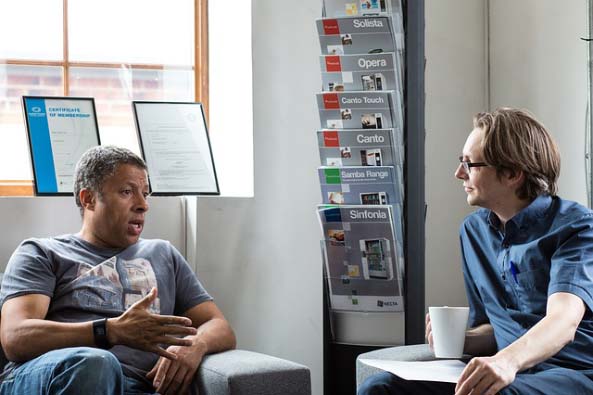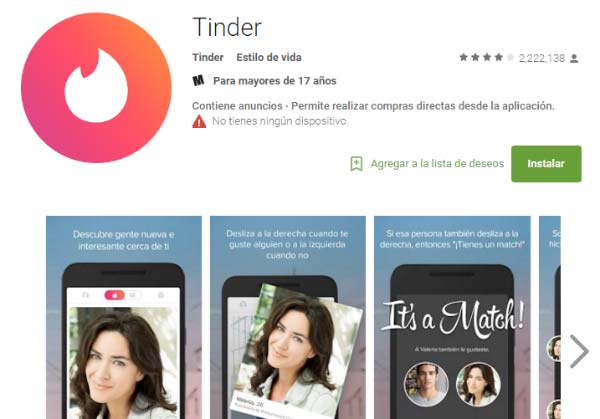I think you’ll agree with me when I say that it is difficult to find entertaining and fun strategies that you can use in your every day life to improve your Spanish speaking language skills.
So, below are some additional resources that you may not have previously considered.
Let’s get started:
Contents
1. Find a Hobby in Spanish via Youtube or Udemy
Find a topic that you really like and search for Youtube channels related to this topic in Spanish – this will help you familiarize yourself with the language and make it more fun and interesting! Another could tip is to use the app in Udemy to find an intersting course in Spanish.

For example, I’m learning English and I look for information on entrepreneurs, SEO, and personal development every day.
I found some interesting channels that I cannot stop listening to like TED and Neil Patel. They have information that really interests me and this greatly improves my english-learning capability.
These interests really drive me to improve my English.
2. Always read aloud!
One of the main problems when we want to speak another language is confidence.
A very good solution to gaining confidence is to read books or texts in Spanish aloud, this helps you build confidence by hearing your voice in another language and practicing your pronunciation.
You might be interested in: Spanish Pronunciation
3. Language Exchange
This one seems obvious, but you don’t know how many people think that learning a language is just studying grammar and vocabulary – this can’t be farther from the truth.
For this, I suggest finding a partner who you can either speak with face-to-face.

I can tell you that it has been one of the most beautiful experiences of life. It’s fun, rewarding and very useful to be able to talk with someone who is also learning a language.
Soon I’ll post an article about this experience!
4. Keep a notebook with daily vocabulary
This exercise is very useful and can help you improve and expand your vocabulary.
When I go out on the street I try to see if I know the English name of all the things that I find.
If I do not know how, for example, to say “arbol” in English, I take a note in my notebook and later at night I review and translate all the words that I don’t know.
I review these words and do exercises to improve my vocabulary retention and memorization.
5. Find a Spanish-speaking girlfriend or boyfriend
I know for some it will sound crazy, but many people I know have improved their Spanish thanks to having a Mexican boyfriend or girlfriend.

The results are astonishing, there is a motivation to communicate with him or her as it would otherwise be.
I could not find an American girl, but if you know someone who wants to talk to me on Tinder I would be very grateful. :)
6. Traveling
The best way to learn a language is to travel. Look for a Spanish course in Mexico, Spain or any Spanish-speaking country.
Here you can find interviews with people who have already traveled to Mexico:
- A German Tells her Experience Studying Spanish in Mexico (Episode #2)
- An Italian Tells her Experience Studying Spanish in Mexico (Episode #1)
If you can not travel, look for a friend or tutor in your country who speaks Spanish. Language exchange schools usually look for people who want to have an exchange with their students.
It’s great to travel, but just as important to have someone who can correct you and help you improve your Spanish.
7. Find blogs and online interest groups
There are many blogs in Spanish in which you can read and participate, make comments and ask for help with writing and speaking, don’t be shy. This will help you to be more confident when you write. Examples: Media Vida, Quora Spanish or Todo Expertos.

8. Read a lot
How do you plan to write better if you don’t read in another language?
Start with simple reading, even stories for children, and you’ll see that your comprehension improves daily.
Do not expect to see results immediately, you must have patience because at the beginning it will be very difficult to understand many words.
9. Sing
Sing daily, I have been practicing singing songs in English for several months and my pronunciation has improved considerably.
You may not know many groups in Spanish, but there are many great Spanish-speaking artists of all genres, here’s a small list of some of them:
Cerati, Natalia LaFourcade, Mon Laferte, Cafe Tacuva, Ruido Rosa, Zoe, Luis Miguel, etc.

It gets more interesting when you find a style of music that you are passionate about and comprehension comes much easier.
10. Listen, listen and listen
One of the most important principles for improving language skills is listening as much as possible to get accustomed to the sounds and rhythm of natural conversations.
Surround yourself with radio programs, podcasts, audiobooks, movies, TV shows, etc.
The mind will become accustomed to hearing these words and little by little you will see that you will begin to synthesize words in Spanish.
11. Copy gestures and movements
Copying gestures and movements are very useful when you start learning. The best thing you can do is to copy the movements of the lips and pay attention to body language as a well of helping.

Remember that most of our language is body language and it indicates a lot of what you are trying to say. In Mexico , there are not as many gestures and body movements but learning a few of the basics and paying attention to expressions often times says much more than words.
Conclusion
- The most important thing is to practice daily and do not lose motivation.
- Focus on finding topics that are relevant to you to make learning easier.
- Focus on making your learning fun through reading aloud, singing and creating relationships with native speakers of the language you are interest in learning.
Now I’d like to hear from you:
Looking for More?
15 Spanish Resources for Students
Did you find this helpful?
Or maybe you have a question.
Either way, leave a quick comment below.
